MercoPress. South Atlantic News Agency
Tag: Uruguay
-
Friday, April 15th 2011 - 00:12 UTC
“Other blocks demand too much from Mercosur and offer too little”

Several Mercosur negotiations with other blocks have failed because “they ask too much and offer too little” said Samuel Pinheiro recently appointed Mercosur High Representative and who is holding a round of meetings with member countries’ leaders.
-
Thursday, April 14th 2011 - 02:30 UTC
Uruguay Senate annuls amnesty bill benefiting the military but triggers further controversy
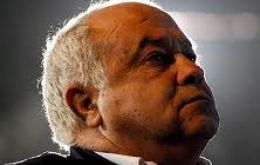
A closely divided Senate has passed legislation to overturn an amnesty for human rights crimes committed by the military and security forces during Uruguay's 1973-85 dictatorship, overruling voters who in two referendums upheld the law in 1989 and 2009. The decision triggered strong controversy in the Uruguayan political system.
-
Wednesday, April 13th 2011 - 05:41 UTC
IMF approves Uruguay’s performance but road ahead has many uncertainties
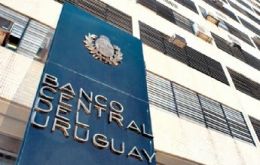
Uruguay’s growth estimate for this year remains at 5% but is forecasted at 4.2% for 2012 with warnings on the economy’s over-heating, significant inflow of capital and inflation, according to the IMF World Economic Outlook released this week. In 2010 the Uruguayan economy expanded 8.5%.
-
Tuesday, April 12th 2011 - 04:17 UTC
Uruguay expands alternative energy capacity with a 50 MW wind turbine farm
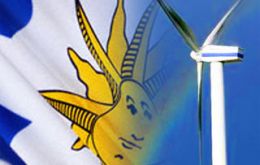
Uruguay continues to expand its alternative green energy capacity and the latest contract award will have 25 wind turbines which must be operational within a maximum period of three years. The wind power project of 50 MW will supply renewable energy to a population of 50,000 people.
-
Monday, April 11th 2011 - 06:22 UTC
Mercosur costs and growing domestic demand limit beef export volumes

With stronger local currencies Mercosur main beef exporters, Brazil and Uruguay are finding it more profitable to supply their domestic markets than exporting, in spite of growing international demand.
-
Saturday, April 9th 2011 - 00:21 UTC
Vazquez denies saying the Kirchners had behaviour patterns recalling fascism
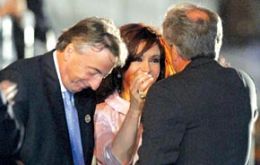
Former Uruguayan president Tabaré Vázquez denied this week that he ever said that his Argentine counterparts Néstor and Cristina Kirchner are “fascists”, like Wikileaks cables stated.
-
Thursday, April 7th 2011 - 10:11 UTC
Uruguay’s public debt to abandon foreign currencies for local Pesos

Uruguay this year plans to swap part of its foreign-currency bonds for debt denominated in Pesos, said Economy Minister Fernando Lorenzo. Uruguay will also sell Peso securities and use the proceeds to pay off bonds denominated in other currencies, Lorenzo said without providing further details.
-
Wednesday, April 6th 2011 - 01:39 UTC
Uruguay’s March inflation soars 1.42% and 3.6% in the first quarter
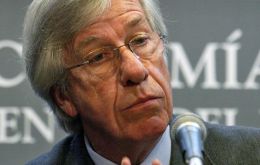
Uruguay consumer prices soared 1.42% in March, reaching 8.17% in the last twelve months and 3.6% in the first quarter, which is dangerously close to the twelve month government target of 3% to 7%, which theoretically should go down to 4% to 6% next June.
-
Tuesday, April 5th 2011 - 10:11 UTC
Uruguay has no plans to issue new debt: 2011 obligations comfortably covered

Uruguay's economy minister said the country had no concrete plan to issue new debt because it had already covered 2011 obligations and debt servicing costs will fall in 2012. Nevertheless he complained about the “poor treatment” of Uruguay by the risk rating agencies.
-
Monday, April 4th 2011 - 07:17 UTC
Mujica promises businessmen economic policy to remain on course and reliable
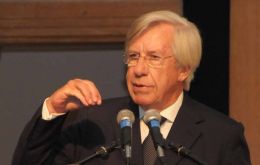
Uruguayan president Jose Mujica ratified this weekend before 1.200 businesspeople that his administration will keep the course and ‘reliability’ of the current economic policy, although this will not impede “changes that may surface consequences of the moment”.
